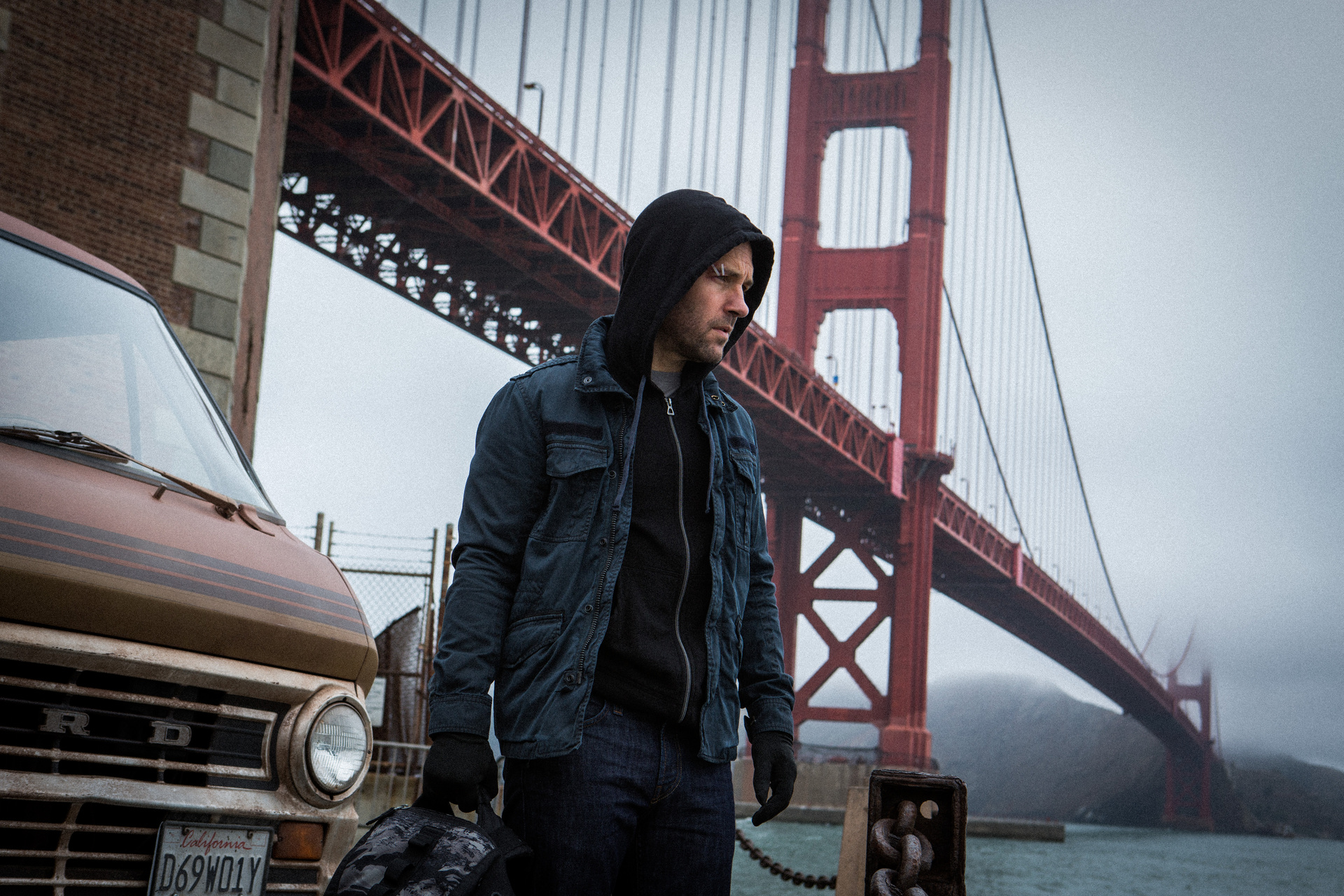Ant-Man was never going to be Marvel’s biggest hit. Superhero team ups replaced single superhero adventures in terms of popularity in 2012. However, Ant-Man is still an important test for Marvel Studios: can they turn a troubled production into a halfway decent film? Though Ant-Man clearly suffers the effects of multiple writers’ influences, the answer from Marvel is a firm yes. To make up for its inconsistency, Ant-Man delivers breezy humor and strong pacing with a surprisingly fun conclusion. It’s not a game changer, but Ant-Man nudges the Marvel juggernaut forward a tiny bit to the next big release.
After a brief intro into Hank Pym’s (Michael Douglas) fallout with his company, we get introduced to Scott Lang (Paul Rudd), a low level con artist who steals to get back his daughter Cassie (Abby Ryder Fortson) and possibly wife Maggie (Judy Greer); however, Maggie has started dating cop Paxton (Bobby Canavale) who wants Scott to provide for himself to be in Cassie’s life. Using the only talent he has, Scott breaks into Hank Pym’s house with the help of his best buddy Luis (Michael Pena). Pym is so impressed with Scott’s abilities, that he recruits the thief to don his Ant costume. This has angered Pym’s daughter Hope (Evangeline Lilly), who is working for Darren Cross (Corey Stoll), Pym’s possibly deranged replacement at his old company.
Edgar Wright was originally slated to direct Ant-Man, but bowed out due to his unwilingness to tie the movie into the Marvel Cinematic Universe (MCU). Peyton Reed stepped in an did an admirable job with what Wright left behind, including letting Adam McKay and Paul Rudd tweak the script to appease Marvel. Reed’s direction of the CGI training is fun and breezy, reminding me of many of the earliest superhero films. Reed acquits himself best to the inevitable final battle, which opts for anticlimactic humor over world-ending tragedy, fitting the tone of the film. The director also plays to the strengths of each of the actors via monologues for Michael Douglas or Michael Pena’s telephone game, covering for the core of flaws that could burst at any moment. Through Reed’s direction, Ant-Man reaches its conclusion before it gets a chance to fall totally apart.
Because there are threats to Ant-Man’s credibility around every corner. The McKay-Rudd screen collaboration is fine, but is jars heavily with the Wright material feeling at times like two movies crammed into one. Some scenes go on too long, or stall in the middle for inexplicable reasons. Also, characters other than Scott and Hank are razor thin; Evangeline Lilly is especially wasted in this, shoehorned in as a love interest even though she’s way better than that. The plot relies heavily on convenience in the third act and very little explanation about how Paul Rudd saves the day. Ant-Man mostly exists to tie him into the MCU, making the whole story superfluous in this film.
Paul Rudd is fine playing the straight man, relying mostly on his boyish charm. He is pretty neutered here though, ceding the stage to other great performers. Michael Douglas adds stoicism and command as Hank Pym; he can deliver the monologue with the best of them. Michael Pena flirts with the Jar Jar Binks line, but mostly stays on the right side of the line, getting some decent laughs. Bobby Canavale does decent work with an underwritten part. Evangeline Lilly and Judy Greer are wasted; Ant-Man severely disservices its women. And poor Corey Stoll gets to play one note: psychotic, which is ok but grows old quickly.
Ant-Man is a Marvel success story. Not because it is a landmark superhero film, but because they turned a should have been lemon into lemonade. It ties Ant-Man into the MCU, setting up his role on the team in the upcoming films for the film company. Plus, ants are just amazing creatures, and need more of a voice in superhero films.

